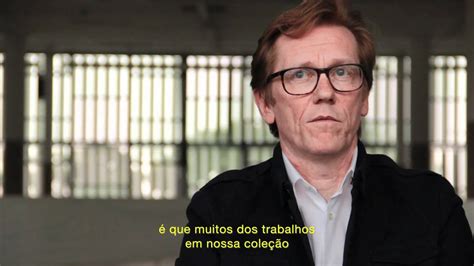A Quote by Mena Massoud
When we uplift artists who reflect diverse perspectives their stories not only tell us how people view others, but how they view themselves.
Related Quotes
How we view ourselves can often determine the perspective and degree in which we see others and the world around us. Each and every one of us has a view. Such a view, that it can shape the future of others and how they live, dream and look towards the future that we all hope is better and more fruitful than our past. This I believe is a common initiative.
Each of us is comprised of stories, stories not only about ourselves but stories about ancestors we never knew and people we've never met. We have stories we love to tell and stories we have never told anyone. The extent to which others know us is determined by the stories we choose to share. We extend a deep trust to someone when we say, "I'm going to tell you something I've never told anyone." Sharing stories creates trust because through stories we come to a recognition of how much we have in common.
[On how she goes about trying to live authentically] Well really listening to my point of view and if I am on a set, say, that doesn't really value a woman's point of view, regardless of how they feel, continuing to give my point of view and try to find a way to be heard and not diminishing myself because other people are diminishing me. Because that, I think, is the worst temptation that, you know, you judge yourself by how others are judging you, and to fall into that trap is to walk into the realm of self-annihilation.
I just think that pop music is very interesting in how it can reach so many people. I like that I can tell stories and I just wanted to be heard more, I guess. That's why it's pop, but in my mind I don't really view my music as pop, I don't really view it as anything. I just look at it as a picture, I like visuals.
These artists all have some kind of message to the public. These messages can be quite personal, maybe about their own existential situation, and it can be about suffering, it can be about questioning of one's existence and so on. They are all telling us very genuine stories, which are touching us in different ways and they are enlightening in different ways. But it's not only the stories themselves, but it's how it is done - that creates the impact of the story. It is not what is said but how it is said. I don't think you can dissociate the content from the form.
History teaches us that a given view has been abandoned in favor of another by all men, or by all competent men, or perhaps by only the most vocal men; it does not teach us whether the change was sound or whether the rejected view deserved to be rejected. Only an impartial analysis of the view in question, an analysis that is not dazzled by the victory or stunned by the defeat of the adherents of the view concerned - could teach us anything regarding the worth of the view and hence regarding the meaning of the historical change.




































